WOW, dear kids, did you see that? The Large Hadron Collider was fired up today. At exactly 07:32 GMT. Where was I at that time? What was I doing?
I was teaching (logic, of course) to Chinese teenagers in a course about academic writing, explaining the qualities of argumentation. All men are mortal / Mr. Wang is a man / Therefore, Mr. Wang is mortal. That made everybody laugh. I was drawing sets on the white board. All cats are mortal. Mr. Wang is mortal. Does that make Mr. Wang a cat? We had fun. All that is yellow is a banana. What a coincidence, Miss Li’s shoes happened to be yellow today, bright sunny yellow. Is Miss Li wearing bananas? She was slightly embarrassed as we gladly pondered the logic.
That was my tiny contribution to the world of rigor today, parallel time-wise to this gigantic experiment happening in Europe. My minuscule drop for the betterment of knowledge and understanding. You see, baby, that’s why I get up the morning to go to work. I really intend, on my good days, to lessen the influence of stupidity. I'm a sort of missionary probably, meaning someone who likes to believe he or she can have a mission. Sounds tacky? I want these young people to be independent in their thinking. To be able to express their thoughts, and argue decently. They may not care right now. They probably don’t. But later, who knows? What we discussed today may resurface.
Often, I get desperate. My students are very withdrawn, quiet. Drifting. When they start in our school, they have already failed at so many things. The only child of well-to-do families with the means to pay tuition in a private institution, the public ones having rejected them. No interests. No desires, no vision of a future. Kids just floating. Passivity, indifference. Hardly any sense of pleasure. Few opinions, only the overwhelming effect of group-think on banal issues. But a lot of money to buy expensive clothes, gadgets, and cars.
The elite… We get them by the hundreds. And to keep them alert, their eyes opened, I must hide teaching under the guise of entertainment. Be funny. Gesticulate. Be very concrete in the way I introduce concepts. Work with examples, not openly with theories. Like today. It worked.
This morning, before class, I was correcting graphs, tables, charts made by the students. Not a single axis making sense. Absolute carelessness. Percentages not adding up. Elements thrown together not belonging to the same classes, categories. No purpose to the visual representation of data. What is it that you want to show? do I keep asking. Why this bar chart, why these lines or these points on the graph? What did you try to say? Explain it to me, try. Please. Why do you divide your information like this? What was your intention? They don't know. They're even surprised such questions can be asked.
It seems my mission is to save the wealthy from themselves. More precisely, to save us from people with the financial capabilities to do a lot of harm if they choose to remain that ignorant. I worry about such a future, you see. Not that the problem doesn't already exist. But in that future, I won't be there, you will. Who will look after you?
Do you think I ask too many questions? Perhaps it's scaring them away, pushing them further into their silence and apathy. But I want them to understand it's a language. It has a message. It's the same as using words. Don't be afraid because these are digits. You can do lots of things with data. Depending on the goals, the same data can be drawn differently, and used to express different ideas. That's called manipulation. It's important to understand this. How will these students function later unable to have a critical view at what surrounds them? What kind of decisions will they make later? And the consequences?
My students tend to think that doing something, anything, is sufficient. They’re taken aback when I tell them no, it’s not sufficient. It’s got to be good too. And "good" must be understood in the sense of "meaning." Do we have something here? Even the shadow of meaning would be a start.
I get a little reaction then. They straighten their shoulders, and stare, astonished, at me. As if it was news. Sometimes, I think it’s simply the word “no” that they’ve never heard before, and they wonder, honestly, what it means when applied to their world of spoiled kids. If I can teach them that, I will have done something perhaps useful.
So, the LHC. Lets come back to the topic. My mind is blown away by the magnitude of the enterprise, its goals, what it can teach us. Imagine. Working at re-creating the conditions just after the Big Bang, looking to explain the physical universe. It will take years before the analysis of the data leads to any conclusive evidence, I guess. Maybe not even during my lifetime. But in yours, probably. Imagine. Repeating trillions of times what is believed to have happened about 15 billion years ago. What made the galaxies, the stars, the planets. Us. Yes, all of us.
Sorry if I sound like I’m teaching again. Preachy. I'm just so impressed. And it's a feeling I enjoy. Rare.
The computer programs needed to process such quantities of information. Imagine. The staggering amount of data that will, of course, need to be handled by hundreds, maybe thousands of facilities around the world, data filtered, organized, flagged, decorticated, analyzed, evaluated, verified by so many people. A sustained collaborative effort, worldwide. Oh, imagine. Imagine.
Will the scientists find it, the "god particle," the Higgs boson? What has made the universe possible, what is thought to give matter its mass. The particle named after Peter Higgs, a Scottish scientist, in 1964. How old was I? 11. Imagine, dear. When I was 11 learning to multiply, to subtract, to properly count and draw simple geometrical shapes. And that man pointing to a particle that has never been observed. All in the mind. All from reasoning. Imagine. Making predictions about the existence of a sub-atomic particle no one can see. Postulate. Deduct. Think. Calculate. Wow. Try to imagine.
Do you understand why it’s so important? Imagine an instant that, eons ago, there was no mass. Nothing would have ever taken shape. Without mass, life would have never begun.
What will the protons do, smashed together at incredibly high energy levels inside the LHC tunnel? Will they generate these theoretical particles? Trillions of protons racing. The engineering of millions of collisions per second. The engineering of equipment capable of measuring the time needed for a particle to pass, a billionth of a second. I don’t think we can even start to imagine the applications that will rise one day from such technologies.
Oh yes, and the 11 dimensions, a chimera? Will the LHC enlighten us? Will the mathematical constructs of the past century hold? Who knows? Who knows? Oh, my darlings. The birth of our universe...
Even though I’m a layperson, I imagine. It teaches me something. About thinking and about doing, getting a better grasp of Gestalt, of what the parts can do, of their relationship to the whole. Of what many people working together can achieve that they cannot do alone, separately. Yes, imagine that.
Ok, my students were not as impressed as I was when I tried to interest them to the experience. And I don’t think colleagues were either. It’s alright. My amazement didn’t falter for that. I keep it within, focusing on Mr. Wang who’s mortal and who’s not a cat.
I asked the students to tell me if the following sentence was adequate from a logical perspective: Young Mr. Ma will fail his test because he didn’t study.
My students, who never study, knew this to be quite true from their personal experience. That’s inference, baby. And that was not my question. We should first start by saying Only those who study will pass the exam. Right?
Oh well. I’ll continue to explain this next time. It was a bit too much for a single class. And until then, they’ll keep on writing at college and university levels: I love Beijing because it’s the capital of China. Or: I prefer this brand of bottled water to other brands because water is the source of life.
Every time my blood pressure goes up. But I hang on. Somewhere in Switzerland protons are going faster and faster. And I imagine. The continuity, from me to you, from you to your own children, and their children. As particles appear, hopefully some that have not been seen since the beginning of times. A glance at how the building blocks of matter are made. It's for all of us, my sleepy students included. Generations to come.
Do not think I’m exalted, refusing to consider the dangers skeptics and doomsday-fortune-tellers have been announcing. Critics warning the LHC could create wormholes capable of swallowing the Earth. Alarms. Panic. Of course, I do not have the expertise to gauge the details of the experiment, nor, even if I had access to comprehensive data, could I study it to arrive at an absolutely well-informed evaluation of the risks. That's impossible.
So I am not telling you there are no risks. It’s reasonable to think there are probably some. But it’s also reasonable to think they've been addressed to the best of our current knowledge in the field of physics. Or not. We’ll therefore called these “(un)calculated risks.”
Understand me well. I don’t prescribe to the attitude we should blindly trust “experts.” Indeed, we must question them, but we must also remain aware that we can never know for sure what “safe” is. It is a relative concept. We look at probabilities.
What odds should we consider acceptable, do we only know? And who should answer such a question?
Danger being inevitable, how much of it can we endure and for the sake of what kind of gains?
Tomorrow, honey, it’s September 11th. In 1822, the Church admitted that it wasn’t necessarily heresy to claim, as Galileo had done almost two centuries earlier, that the Earth turns around the Sun. But do you know it’s only in 1992 that a pope officially admitted that the Earth wasn’t a stationary body?
You will always find people who resist ideas and progress. Even when the evidence and the facts are laid clearly before their eyes. When this happens, you must ask this: What will the cost be if you turn your back on an experience?
As I told you, dear ones, I happen often to teach the word “no,” because it is vital that we understand its meaning and its power, so to always use it appropriately.
Laolao
I was teaching (logic, of course) to Chinese teenagers in a course about academic writing, explaining the qualities of argumentation. All men are mortal / Mr. Wang is a man / Therefore, Mr. Wang is mortal. That made everybody laugh. I was drawing sets on the white board. All cats are mortal. Mr. Wang is mortal. Does that make Mr. Wang a cat? We had fun. All that is yellow is a banana. What a coincidence, Miss Li’s shoes happened to be yellow today, bright sunny yellow. Is Miss Li wearing bananas? She was slightly embarrassed as we gladly pondered the logic.
That was my tiny contribution to the world of rigor today, parallel time-wise to this gigantic experiment happening in Europe. My minuscule drop for the betterment of knowledge and understanding. You see, baby, that’s why I get up the morning to go to work. I really intend, on my good days, to lessen the influence of stupidity. I'm a sort of missionary probably, meaning someone who likes to believe he or she can have a mission. Sounds tacky? I want these young people to be independent in their thinking. To be able to express their thoughts, and argue decently. They may not care right now. They probably don’t. But later, who knows? What we discussed today may resurface.
Often, I get desperate. My students are very withdrawn, quiet. Drifting. When they start in our school, they have already failed at so many things. The only child of well-to-do families with the means to pay tuition in a private institution, the public ones having rejected them. No interests. No desires, no vision of a future. Kids just floating. Passivity, indifference. Hardly any sense of pleasure. Few opinions, only the overwhelming effect of group-think on banal issues. But a lot of money to buy expensive clothes, gadgets, and cars.
The elite… We get them by the hundreds. And to keep them alert, their eyes opened, I must hide teaching under the guise of entertainment. Be funny. Gesticulate. Be very concrete in the way I introduce concepts. Work with examples, not openly with theories. Like today. It worked.
This morning, before class, I was correcting graphs, tables, charts made by the students. Not a single axis making sense. Absolute carelessness. Percentages not adding up. Elements thrown together not belonging to the same classes, categories. No purpose to the visual representation of data. What is it that you want to show? do I keep asking. Why this bar chart, why these lines or these points on the graph? What did you try to say? Explain it to me, try. Please. Why do you divide your information like this? What was your intention? They don't know. They're even surprised such questions can be asked.
It seems my mission is to save the wealthy from themselves. More precisely, to save us from people with the financial capabilities to do a lot of harm if they choose to remain that ignorant. I worry about such a future, you see. Not that the problem doesn't already exist. But in that future, I won't be there, you will. Who will look after you?
Do you think I ask too many questions? Perhaps it's scaring them away, pushing them further into their silence and apathy. But I want them to understand it's a language. It has a message. It's the same as using words. Don't be afraid because these are digits. You can do lots of things with data. Depending on the goals, the same data can be drawn differently, and used to express different ideas. That's called manipulation. It's important to understand this. How will these students function later unable to have a critical view at what surrounds them? What kind of decisions will they make later? And the consequences?
My students tend to think that doing something, anything, is sufficient. They’re taken aback when I tell them no, it’s not sufficient. It’s got to be good too. And "good" must be understood in the sense of "meaning." Do we have something here? Even the shadow of meaning would be a start.
I get a little reaction then. They straighten their shoulders, and stare, astonished, at me. As if it was news. Sometimes, I think it’s simply the word “no” that they’ve never heard before, and they wonder, honestly, what it means when applied to their world of spoiled kids. If I can teach them that, I will have done something perhaps useful.
So, the LHC. Lets come back to the topic. My mind is blown away by the magnitude of the enterprise, its goals, what it can teach us. Imagine. Working at re-creating the conditions just after the Big Bang, looking to explain the physical universe. It will take years before the analysis of the data leads to any conclusive evidence, I guess. Maybe not even during my lifetime. But in yours, probably. Imagine. Repeating trillions of times what is believed to have happened about 15 billion years ago. What made the galaxies, the stars, the planets. Us. Yes, all of us.
Sorry if I sound like I’m teaching again. Preachy. I'm just so impressed. And it's a feeling I enjoy. Rare.
The computer programs needed to process such quantities of information. Imagine. The staggering amount of data that will, of course, need to be handled by hundreds, maybe thousands of facilities around the world, data filtered, organized, flagged, decorticated, analyzed, evaluated, verified by so many people. A sustained collaborative effort, worldwide. Oh, imagine. Imagine.
Will the scientists find it, the "god particle," the Higgs boson? What has made the universe possible, what is thought to give matter its mass. The particle named after Peter Higgs, a Scottish scientist, in 1964. How old was I? 11. Imagine, dear. When I was 11 learning to multiply, to subtract, to properly count and draw simple geometrical shapes. And that man pointing to a particle that has never been observed. All in the mind. All from reasoning. Imagine. Making predictions about the existence of a sub-atomic particle no one can see. Postulate. Deduct. Think. Calculate. Wow. Try to imagine.
Do you understand why it’s so important? Imagine an instant that, eons ago, there was no mass. Nothing would have ever taken shape. Without mass, life would have never begun.
What will the protons do, smashed together at incredibly high energy levels inside the LHC tunnel? Will they generate these theoretical particles? Trillions of protons racing. The engineering of millions of collisions per second. The engineering of equipment capable of measuring the time needed for a particle to pass, a billionth of a second. I don’t think we can even start to imagine the applications that will rise one day from such technologies.
Oh yes, and the 11 dimensions, a chimera? Will the LHC enlighten us? Will the mathematical constructs of the past century hold? Who knows? Who knows? Oh, my darlings. The birth of our universe...
Even though I’m a layperson, I imagine. It teaches me something. About thinking and about doing, getting a better grasp of Gestalt, of what the parts can do, of their relationship to the whole. Of what many people working together can achieve that they cannot do alone, separately. Yes, imagine that.
Ok, my students were not as impressed as I was when I tried to interest them to the experience. And I don’t think colleagues were either. It’s alright. My amazement didn’t falter for that. I keep it within, focusing on Mr. Wang who’s mortal and who’s not a cat.
I asked the students to tell me if the following sentence was adequate from a logical perspective: Young Mr. Ma will fail his test because he didn’t study.
My students, who never study, knew this to be quite true from their personal experience. That’s inference, baby. And that was not my question. We should first start by saying Only those who study will pass the exam. Right?
Oh well. I’ll continue to explain this next time. It was a bit too much for a single class. And until then, they’ll keep on writing at college and university levels: I love Beijing because it’s the capital of China. Or: I prefer this brand of bottled water to other brands because water is the source of life.
Every time my blood pressure goes up. But I hang on. Somewhere in Switzerland protons are going faster and faster. And I imagine. The continuity, from me to you, from you to your own children, and their children. As particles appear, hopefully some that have not been seen since the beginning of times. A glance at how the building blocks of matter are made. It's for all of us, my sleepy students included. Generations to come.
Do not think I’m exalted, refusing to consider the dangers skeptics and doomsday-fortune-tellers have been announcing. Critics warning the LHC could create wormholes capable of swallowing the Earth. Alarms. Panic. Of course, I do not have the expertise to gauge the details of the experiment, nor, even if I had access to comprehensive data, could I study it to arrive at an absolutely well-informed evaluation of the risks. That's impossible.
So I am not telling you there are no risks. It’s reasonable to think there are probably some. But it’s also reasonable to think they've been addressed to the best of our current knowledge in the field of physics. Or not. We’ll therefore called these “(un)calculated risks.”
Understand me well. I don’t prescribe to the attitude we should blindly trust “experts.” Indeed, we must question them, but we must also remain aware that we can never know for sure what “safe” is. It is a relative concept. We look at probabilities.
What odds should we consider acceptable, do we only know? And who should answer such a question?
Danger being inevitable, how much of it can we endure and for the sake of what kind of gains?
Tomorrow, honey, it’s September 11th. In 1822, the Church admitted that it wasn’t necessarily heresy to claim, as Galileo had done almost two centuries earlier, that the Earth turns around the Sun. But do you know it’s only in 1992 that a pope officially admitted that the Earth wasn’t a stationary body?
You will always find people who resist ideas and progress. Even when the evidence and the facts are laid clearly before their eyes. When this happens, you must ask this: What will the cost be if you turn your back on an experience?
As I told you, dear ones, I happen often to teach the word “no,” because it is vital that we understand its meaning and its power, so to always use it appropriately.
Laolao






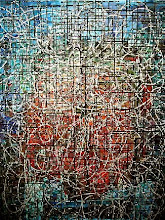
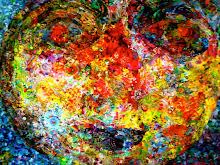





.jpg)
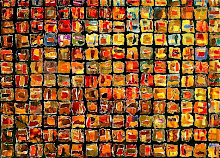

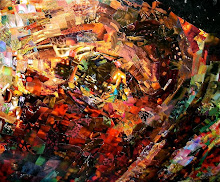



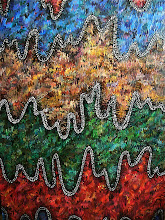
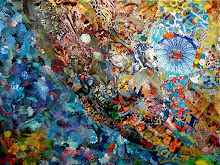

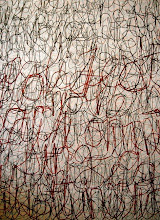
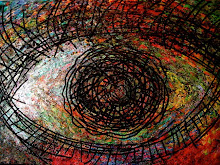
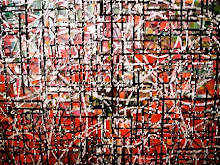

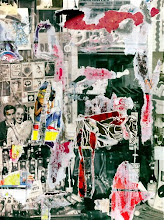
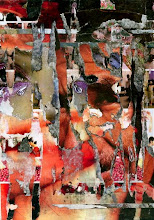
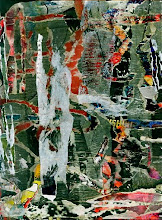
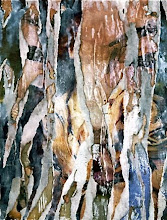


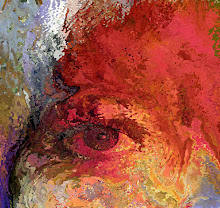
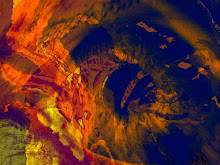
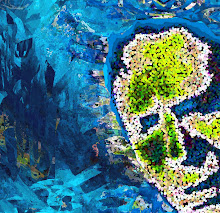
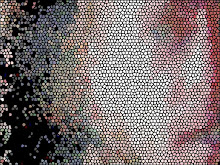.jpg)

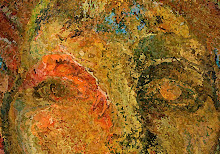
.jpg)

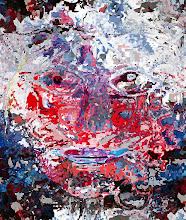
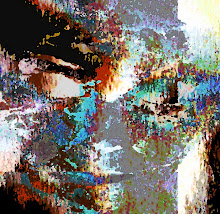
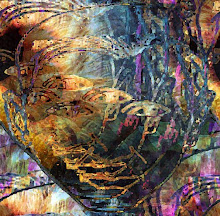


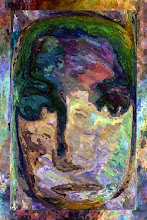photo+album).jpg)
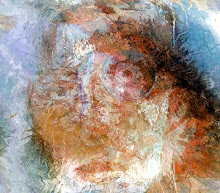.jpg)
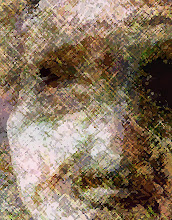

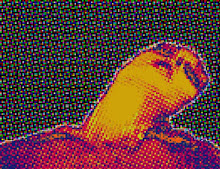
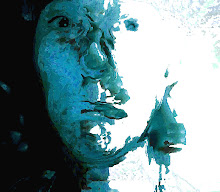






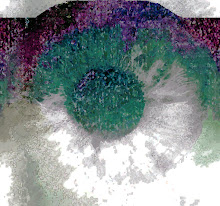
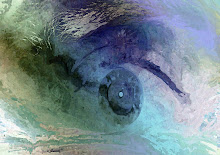




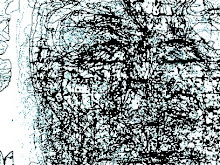.jpg)


No comments:
Post a Comment